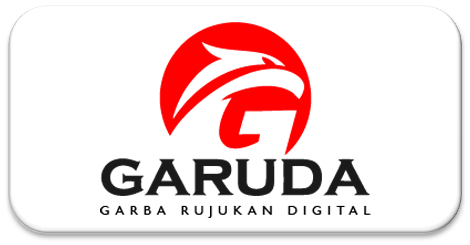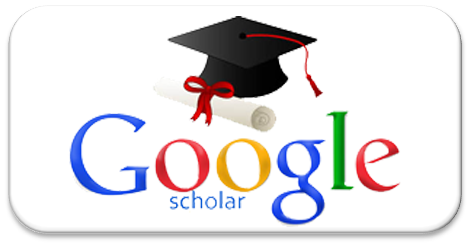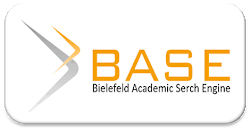Ruang Digital dan Identitas Gay: Studi Sosiologis tentang Penggunaan Aplikasi Walla
Digital Spaces and Gay Identity: A Sociological Study on the Use of the Walla App
DOI:
https://doi.org/10.22373/jsai.v5i2.5422Keywords:
Gay, Ruang Digital, Aplikasi WallaAbstract
This article delves into the sociological implications of the Walla app for the gay community in Medan, highlighting how digital technology facilitates identity formation and social interaction amidst societal stigma and discrimination. Employing a qualitative research methodology with virtual ethnography, the study gathers data through participant observation, field notes, a literature review, and interviews. Findings reveal that Walla is pivotal in providing a safe space for gays to express themselves and build supportive networks, partly due to the lack of family and societal support for their sexual orientation and the user-friendly nature of the app. This study underscores the transformative role of social media in enabling gay individuals in Medan to articulate and negotiate their identities, thereby contributing to our sociological understanding of digital spaces as venues for community building and personal expression. This research highlights the significant role of Walla in fostering a sense of community and visibility for gays in Indonesia, facilitating more authentic self-representation and interaction without fear of stigma.
Abstrak
Artikel ini meneliti implikasi sosiologis aplikasi Walla bagi komunitas gay di Medan, menyoroti bagaimana teknologi digital memfasilitasi pembentukan identitas dan interaksi sosial di tengah stigma dan diskriminasi masyarakat. Menggunakan metodologi penelitian kualitatif dengan etnografi virtual, studi ini mengumpulkan data melalui observasi partisipatif, catatan lapangan, tinjauan literatur, dan wawancara. Temuan menunjukkan bahwa Walla berperan penting dalam menyediakan ruang aman bagi gay untuk mengekspresikan diri dan membangun jaringan dukungan, sebagian karena kurangnya dukungan keluarga dan masyarakat terhadap orientasi seksual mereka serta sifat aplikasi yang mudah digunakan. Penelitian ini menegaskan peran transformatif media sosial dalam memungkinkan individu gay di Medan untuk mengartikulasikan dan menegosiasikan identitas mereka, sehingga memberikan kontribusi pada pemahaman sosiologis kita tentang ruang digital sebagai tempat pembangunan komunitas dan ekspresi pribadi. Penelitian ini menyoroti peran signifikan Walla dalam memupuk rasa komunitas dan visibilitas bagi gay di Indonesia, memfasilitasi representasi diri dan interaksi yang lebih otentik tanpa takut stigma.
References
Abbate, Nicolás, Inés Berniell, Joaquín Coleff, Luis Laguinge, Margarita Machelett, Mariana Marchionni, Julián Pedrazzi, and María Florencia Pinto. 2024. “Discrimination against Gay and Transgender People in Latin America: A Correspondence Study in the Rental Housing Market.” Labour Economics 87:102486. doi: 10.1016/j.labeco.2023.102486.
Abidin, Achmad Anwar. 2018. “Perilaku Penyimpangan Seksual Dan Upaya Pencegahannya Di Kabupaten Jombang.” Prosiding Seminar Nasional & Temu Ilmiah Jaringan Peneliti 545–63.
Armiati, Siska, and Nurbani. 2018. “FENOMENA HOMOSEKSUAL DI KOTA MEDAN (Penelitian Deskriptif Kualitatif Self Disclosure Kalangan Homoseksual Di Kota Medan).” TALENTA USU 1–10.
Blumer, Herbert. 1966. “Sociological Implications of the Thought of George Herbert Mead.” American Journal of Sociology 71(5):535–44. doi: 10.1086/224171.
Cahill, Liam, Mohammed Malik, Bethany A. Jones, A. Treshi Marie Perera, and Daragh T. McDermott. 2024. “Tackling Bisexual Erasure: An Explorative Comparison of Bisexual, Gay and Straight Cisgender Men’s Body Image.” Body Image 51:101763. doi: 10.1016/j.bodyim.2024.101763.
Fatira, Marliya Ak, Ferawati, Satya Darmayani, Sandrina Juliana Nendissa, Opan Arifudin, Fillia Dina Anggaraeni, Rudy Hidana, Nurhana Marantika, Nur Arisah, Nazaruddin Ahmad, Rinanda Febriani, and Febria Sri Handayani. 2021. Pembelajaran Digital. Vol. 3. Bandung: CV WIDINA MEDIA UTAMA.
Francis, Dennis A. 2024. “Queer and Trans Activism in South African Schools: Non-Governmental Organisations (NGOs) Disrupting LGBT+ Inequalities.” Teaching and Teacher Education 148:104705. doi: 10.1016/j.tate.2024.104705.
Hahn, Hunter A., and John R. Blosnich. 2023. “Adverse Childhood Experiences Among Lesbian, Gay, Bisexual, and Queer Veterans.” American Journal of Preventive Medicine 65(4):704–9. doi: 10.1016/j.amepre.2023.04.001.
Kartono, Kartini. 2009. Psikologi Abnormal Dan Abnormalitas Seksual. Bandung: Mandar Maju.
Khatimah, Husnul. 2018. “Posisi Dan Peran Media Dalam Kehidupan Masyarakat.” TASAMUH 16(1):119–38. doi: 10.20414/tasamuh.v16i1.548.
Khotimah, Khusnul. 1970. “Semiotika: Sebuah Pendekatan Dalam Studi Agama.” KOMUNIKA: Jurnal Dakwah Dan Komunikasi 2(2):277–89. doi: 10.24090/komunika.v2i2.108.
Kurniawan, Agung. 2005. Transformasi Pelayanan Publik. Yogyakarta: Pembaruan.
McQuail, Denis. 2010. Mass Communication Theory. London: Sage publications.
Saidah, Elbina Mamla. 2019. “Penyimpangan Perilaku Seksual (Menelaah Maraknya Fenomena Lgbt Di Indonesia.” Jurnal Pendidikan 8(1):56–68.
Sandy, Ademi. 2020. “Underground LGBT Society Di Sekitar Kota Palangka Raya.” Jurnal Sosiologi III(2):81–89.
Setiadi, Ahmad. 2016. “Pemanfaatan Media Sosial Untuk Efektifitas Komunikasi.” Cakrawala - Jurnal Humaniora 16(2).
Shafira Amalia. 2019. “Sejarah Gerakan Dan Perjuangan Hak-Hak LGBT Di Indonesia.” Magdalene, 1.
Sidabalok, Robet, and Sandra Telussa. 2022. “Fenomena Komunikasi Kaum Gay Di Era Digital.” Jurnal Ilmu Komunikasi Pattimura 1(2):196–213. doi: 10.30598/JIKPvol1iss2pp196-213.
Wicaksono, Harto. 2016. “Mengenal Wajah Baru Dunia Komunitas Gay Di Era Digital.” ETNOHISTORI: Jurnal Ilmiah Kebudayaan … III(2):173–98.
Wirawan. 2012. Teori - Teori Sosial Dalam Tiga Paradigma (Fakta Sosial, Definisi, Dan Perilaku Sosial). Kencana.
Xu, Yin, Yidan Ma, and Qazi Rahman. 2023. “Comparing Asexual with Heterosexual, Bisexual, and Gay/Lesbian Individuals in Common Mental Health Problems: A Multivariate Meta-Analysis.” Clinical Psychology Review 105:102334. doi: 10.1016/j.cpr.2023.102334.
Downloads
Published
How to Cite
Issue
Section
License
- Authors retain copyright and grant the journal right of first publication with the work simultaneously licensed under an Attribution-NonCommercial-ShareAlike 4.0 International (CC BY-NC-SA 4.0) that allows others to share the work with an acknowledgment of the work's authorship and initial publication in this journal.
- Authors are able to enter into separate, additional contractual arrangements for the non-exclusive distribution of the journal's published version of the work (e.g., post it to an institutional repository or publish it in a book), with an acknowledgment of its initial publication in this journal.
- Authors are permitted and encouraged to post their work online (e.g., in institutional repositories or on their website) prior to and during the submission process, as it can lead to productive exchanges, as well as earlier and greater citation of published work.













